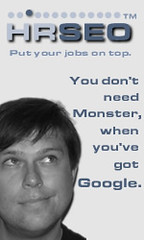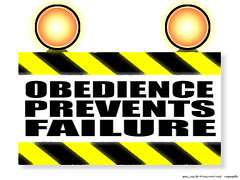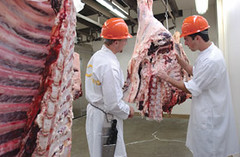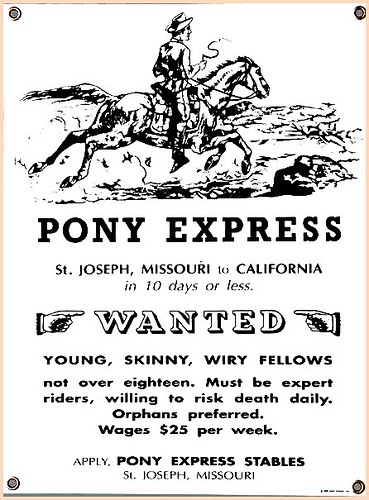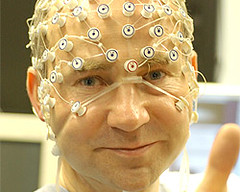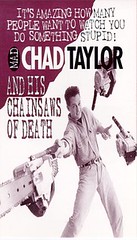The Job Market is Colour Blind.
We received an email recently from someone who wants to move to Canada. I say we because he sent the email to both Michael and I.
This person had a concern, he had heard that skilled people who migrate to our country have trouble finding work and often end up driving cabs. Was that the case he wanted to know? In particular he seemed worried that a form of institutional racism was keeping skilled immigrants from finding work when they move to Canada.
He was basing this on some articles he had read.
It's too bad he didnt' read this article from Canadian Business. It would have presented him with a much different view. Consider some of the following quotes:
"On average, Canadian women are having only 1.5 children each, far below the 2.1 necessary for a population to sustain itself. The numbers mean the labour supply will slowly shrink as the nation ages. By 2011, Ottawa estimates that all new growth in the labour market will have to come from immigrants. In other words, the future of the Canadian marketplace will soon depend for its very survival on a steady supply of foreign-born workers."
"Stephen Plummer is president and chief operating officer of IMP Group International Inc. The company, owner of CanJet Airlines as well as Execaire corporate jet services, is one of the largest private employers in Nova Scotia and has an insatiable appetite for skilled workers in the aerospace field. "One of the things I worry about all the time is Canada's declining workforce," says Plummer. "I don't see things reversing themselves. Immigration has got to be part of the solution.
Plummer's company has hired an entire class of aerospace graduates from one Canadian college, but it's still not enough. To fill critical skill needs, such as engineering, tool design, avionics technology and computer applications, Plummer has also recruited in the United Kingdom, eastern Europe and China."
"Friesens Corp., a commercial printer based in Altona, Man., around 100 kilometres south of Winnipeg, has a standing offer of employment for trained press operators and is finding it increasingly necessary to bring new staff in from overseas, from such places as Germany and Uruguay."
"The situation is even more acute in the trucking industry. "The marketplace is incapable of supplying us with drivers," grumbles Norman Schultz, director of recruitment and retention at TransX, a major trucking firm based in Winnipeg. "We are looking in Romania, China, England, Italy and elsewhere for drivers. We want to grow as a company, but our customer demand exceeds the number of drivers we have." Schultz has found the most effective method of importing labour is to bring foreign workers in on temporary work permits and then use the provincial nominee program to convert them to permanent residents."
Ok one thing I should clarify for those of you who haven't figured it out yet. None of these companies is located in Toronto. And that was the crux of the article. Most immigrants want to move to Montreal, Toronto or Vancouver for a variety of reasons. However this isn't always where the jobs are.
So you should consider which is more important living in Nova Scotia with a job or living in Toronto with none. Incidentally Nova Scotia is a much cheaper place to live than Toronto (and more beautiful).
The second thing that should be obvious from the quotes above is that there is no discrimination against foreign workers. The job market is dependent on the available talent pool and if the pool is depleted the willingness to look elsewhere becomes magnified.
I remember in the late 80s when the demand for programmers was so acute that recruiting firms were actually traveling to Hong Kong to recruit IT professionals. They wanted to get them before they landed in Canada because they would be snapped up so quickly.
If you have a skill that is in demand you will have no problem finding work. If your there is a surplus of talent in your area of expertise you will have trouble. My advice to anyone who wants to move to any country is to evaluate your skill set and find out if it is in demand. If not you might want to select a country where your skills are needed.
Podcast Alert
Jason at Recruiting.com has posted his first-ever podcast.
It's an interview of Joel Cheesman of the Online Recruitment HR blog.
You can listen online or download the mp3 file for later auditation.
Jason at Recruiting.com has posted his first-ever podcast.
It's an interview of Joel Cheesman of the Online Recruitment HR blog.
You can listen online or download the mp3 file for later auditation.
Do Canadians Lack Discipline?
Yesterday, a friend of mine who came to Canada when he was in his twenties, told me that Canadian workers are lazy goof-offs.If it's true, not many newcomers would be surprised.
For, according to a recent article in The Toronto Star they think there's something wrong with the way Canadians raise their kids.
- Yang Bin was surprised by what she saw when she walked her two-year-old granddaughter Sophia Jiang into a family drop-in program...
"Kids just run around and play," said the 65-year-old retired university professor... They are free to do whatever they want. Kids growing up in the West need more discipline.
Parenting is about teaching kids to respect their authorities, so they learn the traditional values and know how to behave properly."....
[Kenise Murphy Kilbride, an early childhood education professor at Ryerson University] said studies have shown that immigrant parents disapprove of their children questioning parental authority.
"They could not understand how `Canadian' parents can tolerate public tantrums of their children and think that the Canadian law prohibiting physical punishment restricts their ability to discipline their children," she added.
Yang...agrees. "In China, we tend to be more restrictive to our children and grandchildren. We spank them when they misbehave... You don't give them choices. You tell them what to do."
- The Afghani way of life is very different from the Canadian way of life. Out of respect, there is always a distance between children and their parents. There's no emotional support, no display of emotions, because parents are afraid that'd lessen their authority over their children.
But, I wonder about the relationship between child-rearing and productivity. Is there a relationship between them?
Martin Seligman claims that the power to make and follow through on one's own decisions from an early age is a great boon to a healthy personality. In The Optimistic Child, he writes:
- The more we make decisions (good or bad) the more we feel in control, the more competent we feel, the more self-esteem we have.
So, again, what is the relation between child-rearing and economic productivity? A search on Google provided no quick answers. Perhaps because there are none.
George Jonas wrote an interesting column about saying "No" to children. It doesn't address productivity directly but it does imply that the issue is not a simple one. Here is an excerpt:
- About 15 years ago, a friend made a pedagogical observation:
"Why should I say no to my daughter when she keeps kicking the table?" he said. "Should I stop her just because it annoys me?"
My friend had a whole zoo of kids... They... interrupted everyone, demanded centre stage, and went into hysterics when -- all too rarely -- their desires were frustrated... My friend's kids may have wanted a very firm hand indeed, but as he gave them none, they became little monsters...
He implied that adults who impose limits on children do it just for their own convenience. He tried to suggest that restrictions were senseless, and served merely to stifle a child.
In making this suggestion my friend echoed a school of pedagogical thought that achieved near-domination among North America's middle-class parents.
The thesis held that... any moulding would suppress a child's spontaneity, creativity and self-confidence. It would risk turning him into a mindless conformist or an inhibited bundle of neuroses.
Saying no to a child who does something annoying serves at least three purposes beneficial both to the child and to society.
First, it habituates the child to obey the parent. Parents, on the whole, have more life experience than their children...
Second,.... shedding infantile selfishness is the basis of any social life, and it's doubtful if children can shed it without some training...
Third, a "no"... accustoms him to the idea that things don't accrue to him by right, and that in order to get something (say, approval) he'll have to give something in return....
Fifteen years have passed...and the table-kicking little monsters...have grown into young men and women. First question: How did they turn out?
Answer: Splendid, I'm happy to report, as well (if not better) than kids of stricter upbringing.
Second question: Has this caused me to change my mind about raising children? Answer: Not a bit.
Its Who You Know
Much is written about networking as the primary job search tool. Personally I think it is overrated and prevents people from doing any sort of cold calling on their own. But that's ok. If candidates really learned how to conduct a job search recruiters would be obsolete pretty quickly.
A lot of companies do hire via internal referrals however so it is wise to keep track of where your friends are.
One example is an outfit called Corporate Executive Board which recruits aggressively for MBA's from some of the finest B schools in the US.
Wendy Person who is the Senior Director of Talent Management tells Businessweek that those who want a job with their company had better work their network:
More than 40% of all hires come from internal referrals. If candidates aren't networking with alumni here at CEB, they are missing out on a wonderful opportunity.
Of course that's assuming they want to work at a place with a lame name like "Corporate Executive Board". Was "Company Limited Incorporated" already taken?
A lot of companies do hire via internal referrals however so it is wise to keep track of where your friends are.
One example is an outfit called Corporate Executive Board which recruits aggressively for MBA's from some of the finest B schools in the US.
Wendy Person who is the Senior Director of Talent Management tells Businessweek that those who want a job with their company had better work their network:
More than 40% of all hires come from internal referrals. If candidates aren't networking with alumni here at CEB, they are missing out on a wonderful opportunity.
Of course that's assuming they want to work at a place with a lame name like "Corporate Executive Board". Was "Company Limited Incorporated" already taken?
An Unemployed Woman
CIBC # 3 Takes Kassie Highway
Every Canadian knows that 20 top bankers (and Marie Cordero) recently left the CIBC to join their ex-boss, Wonderboy David Kassie, at Genuity Capital Markets.
Now the CIBC has axed it's No.3 executive, Jumpin' Jill Denham, Vice Charwoman and Head of Consumer Banking.
CIBC spokesman, Bobby Waite, struggled to hide the truth but, by now, everyone knows the (Soviet-style) code. Like Dave, Jill has left the bank to "pursue other interests".
After some run-ins with the law a few years back, CEO, Handsome John Hunkin, decided to shift his interests from corporate to consumer lending.
And, in order to boost earnings from consumer banking, Jumpin' Jill had to go. But don't feel too bad; she earned $2.1 million Cdn last year in salary and bonus. (That's $1.7 mill US funds).
Sonia "Baxie" Baxendale, age 42, will replace Jill. Her new title is Sr EVP Retail Markets. Vic Dodig, age 39, was hired from UBS Global Asset Management to take her place as head of the asset-management division. Both report to Dave Kassie's old friend and replacement, COO, Gerry McCaughey.
As for Jill's next step? Only, time, will tell.
Based on a story in: Bloomberg.com: David Scanlan reporting in Toronto; Erik Schatzker is his editor in New York
Technorati Tag: Genuity
See Also: GenuityGang Strikes Back -- CIBC Recruiting Scandal -- David Kassie, Kingpin -- David Kassie's Dream -- Dan Daviau -- Earl Rotman -- Kassie Defiant -- Phil Evershed -- Hirst, Morrison, Eggertson -- Marie Cordero -- Bad 4 Recruiters -- Sweet Marie -- The Kassie Cult -- Kassie Honoured -- Hunkin's Millions -- BlackBerry Got 'Em -- Kassie Family Hunted -- Blackberry Mystery Solved -- The Genuity Revolution
CIBC # 3 Takes Kassie Highway
Every Canadian knows that 20 top bankers (and Marie Cordero) recently left the CIBC to join their ex-boss, Wonderboy David Kassie, at Genuity Capital Markets.
Now the CIBC has axed it's No.3 executive, Jumpin' Jill Denham, Vice Charwoman and Head of Consumer Banking.
CIBC spokesman, Bobby Waite, struggled to hide the truth but, by now, everyone knows the (Soviet-style) code. Like Dave, Jill has left the bank to "pursue other interests".
After some run-ins with the law a few years back, CEO, Handsome John Hunkin, decided to shift his interests from corporate to consumer lending.
And, in order to boost earnings from consumer banking, Jumpin' Jill had to go. But don't feel too bad; she earned $2.1 million Cdn last year in salary and bonus. (That's $1.7 mill US funds).
Sonia "Baxie" Baxendale, age 42, will replace Jill. Her new title is Sr EVP Retail Markets. Vic Dodig, age 39, was hired from UBS Global Asset Management to take her place as head of the asset-management division. Both report to Dave Kassie's old friend and replacement, COO, Gerry McCaughey.
As for Jill's next step? Only, time, will tell.
Based on a story in: Bloomberg.com: David Scanlan reporting in Toronto; Erik Schatzker is his editor in New York
Technorati Tag: Genuity
See Also: GenuityGang Strikes Back -- CIBC Recruiting Scandal -- David Kassie, Kingpin -- David Kassie's Dream -- Dan Daviau -- Earl Rotman -- Kassie Defiant -- Phil Evershed -- Hirst, Morrison, Eggertson -- Marie Cordero -- Bad 4 Recruiters -- Sweet Marie -- The Kassie Cult -- Kassie Honoured -- Hunkin's Millions -- BlackBerry Got 'Em -- Kassie Family Hunted -- Blackberry Mystery Solved -- The Genuity Revolution
Grade A Meat
Brad Smart's TOPGRADING system ranks employees as
A's, B's and C's.
A' and B's are assets.
C's will kill your company.
The employee pool is a pyramid with A's on top.
Here's it's composition:
A's - 10%, B's - 25%, C's - 65%.
The definition of an A, B or C depends to some extent on the requirements of the job. Theoretically, a C-player in one job could be an A-player in another.
All, A-Players, however, (unlike most C's) are quick studies in any role. They also have a lot of integrity and a great track record. (But not every one is a team leader or long-term visionary).
What are "A" players looking for? They want:
1. a challenge and to have fun coming to work.
2. the resources and opportunity to make things happen.
3. an informal culture with little bureaucracy.
4. compensation that's tied to performance.
B-Players aren't Grade-A because they fall short in 2 or 3 areas.
Here's a problem. B-players hirelosers B or C players. That's why, if you hire A-players, you can start a favorable chain reaction.
Here's some good news: some B's can be upgraded to A's through coaching and training. Others can become A's if their jobs are fine-tuned to suit them.
C's have to be moved to other jobs or fired. And since most can't cope with new or complex situations, their likely destination is dog food.
Get a Brad Smart DVD. Only $995. USD. Or buy the books: Topgrading and
The Smart Interviewer (Amazon gives you both for $36.27 USD)
Source: Fortune Small Business, via Derby Management site
Brad Smart's TOPGRADING system ranks employees as
A's, B's and C's.
A' and B's are assets.
C's will kill your company.
The employee pool is a pyramid with A's on top.
Here's it's composition:
A's - 10%, B's - 25%, C's - 65%.
The definition of an A, B or C depends to some extent on the requirements of the job. Theoretically, a C-player in one job could be an A-player in another.
All, A-Players, however, (unlike most C's) are quick studies in any role. They also have a lot of integrity and a great track record. (But not every one is a team leader or long-term visionary).
What are "A" players looking for? They want:
1. a challenge and to have fun coming to work.
2. the resources and opportunity to make things happen.
3. an informal culture with little bureaucracy.
4. compensation that's tied to performance.
B-Players aren't Grade-A because they fall short in 2 or 3 areas.
Here's a problem. B-players hire
Here's some good news: some B's can be upgraded to A's through coaching and training. Others can become A's if their jobs are fine-tuned to suit them.
C's have to be moved to other jobs or fired. And since most can't cope with new or complex situations, their likely destination is dog food.
Get a Brad Smart DVD. Only $995. USD. Or buy the books: Topgrading and
The Smart Interviewer (Amazon gives you both for $36.27 USD)
Source: Fortune Small Business, via Derby Management site
File Under: Self-Management
The Zen of Patience
Spurgeon On Patience
Patience is better than wisdom.
An ounce of patience is worth a pound of brains.
It is a medicine which is good for all diseases.
It is as natural for us to murmur as for a horse to shake his head when the flies tease him. But nature should not be the rule.
Grin and bear it is the old-fashioned advice,
but sing and bear it is a great deal better.
Pain past is pleasure; experience comes by it. We ought not to be afraid of going down into Egypt when we know we shall come out of it with jewels of silver and gold.
Sorrows are visitors that come without invitation, but complaining minds send a wagon to bring their troubles home in.
They chew the bitter pill which they would not even know to be bitter if they had the sense to swallow it whole.
What cannot be cured must be endured.
"Must" is a hard nut to crack, but it has a sweet kernel.
Poverty is no shame, but being discontented with it is.
In some things, the poor are better off than the rich.
It is not how much we have, but how much we enjoy.
A poor man's table is soon spread.
And hunger finds no fault with the cook.
The Zen of Patience
Spurgeon On Patience
Patience is better than wisdom.
An ounce of patience is worth a pound of brains.
It is a medicine which is good for all diseases.
It is as natural for us to murmur as for a horse to shake his head when the flies tease him. But nature should not be the rule.
Grin and bear it is the old-fashioned advice,
but sing and bear it is a great deal better.
Pain past is pleasure; experience comes by it. We ought not to be afraid of going down into Egypt when we know we shall come out of it with jewels of silver and gold.
Sorrows are visitors that come without invitation, but complaining minds send a wagon to bring their troubles home in.
They chew the bitter pill which they would not even know to be bitter if they had the sense to swallow it whole.
What cannot be cured must be endured.
"Must" is a hard nut to crack, but it has a sweet kernel.
Poverty is no shame, but being discontented with it is.
In some things, the poor are better off than the rich.
It is not how much we have, but how much we enjoy.
A poor man's table is soon spread.
And hunger finds no fault with the cook.
Happy where you are, or willfully ignorant?
Do you work for crooks? Is your company about to explode (or imploded) in an Enron/Worldcom like scandal? "Gee how the heck should I know?" You are probably asking.
Well Boston Consulting Group has come up with a study that points to some warning signs that could help you decide whether your company is in danger:
Corporate scandals often happen at the most successful firms or at least at firms where the appearance of success breeds a megalomaniac CEO, reams of stock options, overoptimistic goals, and gaga recommendations from Wall Street equity analysts.
This is the conclusion of a Boston Consulting Group study that analyzes the companies responsible for twenty-five of the largest corporate frauds since 1996.
Compared with their clean competitors, "fraud firms" offered their CEOs eight times as much stock-based pay and set corporate performance targets 250 percent higher. Other factors associated with executive malfeasance were inflated stock prices and attention from the press (before their downfalls, fraud-firm CEOs were three times as likely to be quoted in the media as their competitors).
Moreover, two interesting insights emerged. First, good corporate governance - of the sort mandated by post-bubble regulations - may have done little to prevent fraud. Enron's board, for instance, was rated among the nation's five best-governed in 2000. Second, while crooked execs may have fooled analysts, the media, and the public, the market sniffed them out.
The median fraud firm lost 40 percent of its value in the year before its actions came to light. (One wonders who was selling ....)
Source:The Atlantic Online
Well Boston Consulting Group has come up with a study that points to some warning signs that could help you decide whether your company is in danger:
Corporate scandals often happen at the most successful firms or at least at firms where the appearance of success breeds a megalomaniac CEO, reams of stock options, overoptimistic goals, and gaga recommendations from Wall Street equity analysts.
This is the conclusion of a Boston Consulting Group study that analyzes the companies responsible for twenty-five of the largest corporate frauds since 1996.
Compared with their clean competitors, "fraud firms" offered their CEOs eight times as much stock-based pay and set corporate performance targets 250 percent higher. Other factors associated with executive malfeasance were inflated stock prices and attention from the press (before their downfalls, fraud-firm CEOs were three times as likely to be quoted in the media as their competitors).
Moreover, two interesting insights emerged. First, good corporate governance - of the sort mandated by post-bubble regulations - may have done little to prevent fraud. Enron's board, for instance, was rated among the nation's five best-governed in 2000. Second, while crooked execs may have fooled analysts, the media, and the public, the market sniffed them out.
The median fraud firm lost 40 percent of its value in the year before its actions came to light. (One wonders who was selling ....)
Source:The Atlantic Online
Sometimes innocent, sometimes not
US Hero Canadian born
I couldn't resist posting a few lines from the NYT obit for Saul Bellow.
I am an American, Chicago born... and go at things as I have taught myself, free-style, and will make the record in my own way: first to knock, first admitted; sometimes an innocent knock, sometimes a not so innocent." -- Augie March
He was a wonderful talker... a champion detractor. To be loused up by Humboldt was really a kind of privilege. It was like being the subject of a two-nosed portrait by Picasso, or an eviscerated chicken by Soutine.
-- Humboldt's Gift
In contrast with some other winners, who were wary of the albatross of the Nobel [Prize], Mr. Bellow accepted it matter-of-factly. "The child in me is delighted," he said. "The adult in me is skeptical." He took the award, he said, "on an even keel," aware of "the secret humiliation" that "some of the very great writers of the century didn't get it."
In 1994, while on a Caribbean vacation with his wife in St. Martin, Mr. Bellow became sick after eating a toxic fish, and almost died...
NYT April 6, 2005
Saul Bellow, Who Breathed Life Into American Novel, Dies at 89
By Mel Gussow and Chuck McGrath
US Hero Canadian born
I couldn't resist posting a few lines from the NYT obit for Saul Bellow.
I am an American, Chicago born... and go at things as I have taught myself, free-style, and will make the record in my own way: first to knock, first admitted; sometimes an innocent knock, sometimes a not so innocent." -- Augie March
He was a wonderful talker... a champion detractor. To be loused up by Humboldt was really a kind of privilege. It was like being the subject of a two-nosed portrait by Picasso, or an eviscerated chicken by Soutine.
-- Humboldt's Gift
In contrast with some other winners, who were wary of the albatross of the Nobel [Prize], Mr. Bellow accepted it matter-of-factly. "The child in me is delighted," he said. "The adult in me is skeptical." He took the award, he said, "on an even keel," aware of "the secret humiliation" that "some of the very great writers of the century didn't get it."
In 1994, while on a Caribbean vacation with his wife in St. Martin, Mr. Bellow became sick after eating a toxic fish, and almost died...
NYT April 6, 2005
Saul Bellow, Who Breathed Life Into American Novel, Dies at 89
By Mel Gussow and Chuck McGrath
US Bank Reveals Key To Success
The best part of beauty is that which no picture can express. -- Francis Bacon
I have a friend who calls me every day to tell me, "Life is rough, Michael, it really is".
I usually disagree but after reading this report, well... it's bad enough to be short and unattractive but when they go and dock your pay for it! That's really depressing.
But, tall, lean and handsome versus short, stout and unappealing. That's the Rat Race in 2005 according to researchers at the Federal Reserve Bank of St. Louis.
These distinguished scientists have discovered that if you're vertically and horizontally unchallenged and have a nice face, you'll make more money.
And, scientists, I believe you. Why, I can't count the number of times a manager has told me, "Mike, there's a bonus in it for you if the candidates are good looking." Right, Anthony?
Now, what is the St Louis Fed? It's one of 12 banks that make up the U.S. Federal Reserve system. And it published this revelation in the April edition of The Regional Economist, a favourite journal of the economic elite.
But, wait, little people, before you jump,
there is some good news. Listen to this:
Here's the full scoop in water-cooler format.
Pretty Premium: good looking people earn 5% more.
Plainess Penalty: unattractive people earn 9% less.
Boopsey Factor: overly-attractive women are seen as airheads.
Attractive people are more confident and communicate better.
58% of Fortune 500 CEOs are over 6 feet. 30% are over 6, 2.
We believe good looking people perform better.
College kids give good looking profs better evaluations.
Pretty people get special breaks.
White women lose more than white men for being overweight.
Women with an obese body mass index earn 17%
less than women with an average BMI.
Short People, Arise!
Now, apparently, no one sues for appearance discrimination
because only race, gender, creed, origin and age are protected.
But women and minority groups have attacked height requirements in the police force and fire department as tools of gender and ethnic bias.
So, if you've been denied a promotion and you're short, you
could claim that it's a diversity issue. It's worth a shot.
Don't let it get to you
Let's say this report leads you to believe that the odds are stacked against you through no fault of your own. What should you do?
Nothing. Because if you worry about it, that will affect your personality. And personality is a much bigger factor than appearance in making a good impression.
Source: Sharda Prashad, Toronto Star (Apr 6/05)
The best part of beauty is that which no picture can express. -- Francis Bacon
I have a friend who calls me every day to tell me, "Life is rough, Michael, it really is".
I usually disagree but after reading this report, well... it's bad enough to be short and unattractive but when they go and dock your pay for it! That's really depressing.
But, tall, lean and handsome versus short, stout and unappealing. That's the Rat Race in 2005 according to researchers at the Federal Reserve Bank of St. Louis.
These distinguished scientists have discovered that if you're vertically and horizontally unchallenged and have a nice face, you'll make more money.
And, scientists, I believe you. Why, I can't count the number of times a manager has told me, "Mike, there's a bonus in it for you if the candidates are good looking." Right, Anthony?
Now, what is the St Louis Fed? It's one of 12 banks that make up the U.S. Federal Reserve system. And it published this revelation in the April edition of The Regional Economist, a favourite journal of the economic elite.
But, wait, little people, before you jump,
there is some good news. Listen to this:
It is not possible to staff a company without short people.
There simply aren't enough tall people to go around.
Here's the full scoop in water-cooler format.
Pretty Premium: good looking people earn 5% more.
Plainess Penalty: unattractive people earn 9% less.
Boopsey Factor: overly-attractive women are seen as airheads.
Attractive people are more confident and communicate better.
58% of Fortune 500 CEOs are over 6 feet. 30% are over 6, 2.
We believe good looking people perform better.
College kids give good looking profs better evaluations.
Pretty people get special breaks.
White women lose more than white men for being overweight.
Women with an obese body mass index earn 17%
less than women with an average BMI.
Short People, Arise!
Now, apparently, no one sues for appearance discrimination
because only race, gender, creed, origin and age are protected.
But women and minority groups have attacked height requirements in the police force and fire department as tools of gender and ethnic bias.
So, if you've been denied a promotion and you're short, you
could claim that it's a diversity issue. It's worth a shot.
Don't let it get to you
Let's say this report leads you to believe that the odds are stacked against you through no fault of your own. What should you do?
Nothing. Because if you worry about it, that will affect your personality. And personality is a much bigger factor than appearance in making a good impression.
Source: Sharda Prashad, Toronto Star (Apr 6/05)
Career Opportunities....
We just can't write ads like that any more.......
Of course the fact that the Pony Express hasn't existed for well over 100 years has something to do with it as well.
However you have admire the refreshing candour. Most job ads aren't near as truthful these days.
Headhunter...Recruiter...Resume Reader???
Caldwell Partners is a publicly traded headhunting firm here in Canada. They typically work at the highest level (CEO's and such).Latest numbers for the big bodysnatching outfit are good:
- Second quarter operating revenue up 39%;
net income up 19.5%
- Fourth successive quarter of improved operating results;
first-half operating revenue up 34%
- Board declares quarterly cash dividend of $0.02 per share
Good for Caldwell but I don't think we are allowed to call them Headhunters or even Executive Search Consultants any more. Nope Caldwell proudly states in its press release that they are: Canada's first, largest, and only truly national human capital services firm,
Got it? Human Capital Services.
Doesn't really roll off the tongue like "headhunter" does it? Used to be that anything related to employment was given the term "manpower" until women's liberation forced a change in that admittedly sexist term. Then it became Human Resources. Now all of a sudden the mot-du-jour is "Human Capital"
So from now on I no longer wish to be called a "headhunter"
I am a "Human Capital Talent Scout"
Now I have to go update my business cards.
Source Canada News Wire
Interviews of the Future
In the future candidates will probably be plugged into a hot seat before the interview conversation starts.
Then machines will monitor their brains for lies and their speech muscles for unspoken thoughts.
Right now, scientists know that different parts of the brain are activated by lies and honest statements.
And these differences can be measured by functional magnetic resonance imaging (fMRI) scans.
Also, NASA is developing a system that uses two sensors, one on the neck and one under the chin, to monitor electrical signals sent to the speech muscles.
This allows it to work out what people are saying - even if they do not speak out loud.
Sources: here and here.
In the future candidates will probably be plugged into a hot seat before the interview conversation starts.
Then machines will monitor their brains for lies and their speech muscles for unspoken thoughts.
Right now, scientists know that different parts of the brain are activated by lies and honest statements.
And these differences can be measured by functional magnetic resonance imaging (fMRI) scans.
Also, NASA is developing a system that uses two sensors, one on the neck and one under the chin, to monitor electrical signals sent to the speech muscles.
This allows it to work out what people are saying - even if they do not speak out loud.
Sources: here and here.
Personality Assessment Quiz
Merrill-Reid Social Styles
I think this analysis works.
Tho I don't know how useful it is.
According to Merrill and Reid there are 4 types of people.
You can determine anyone's type fairly easily and take it into
account when you communicate with him. So --
Each row below (A,B,C,D,E) contains four adjectives.
Each adjective describes a different one of the four types.
Therefore, if you rank the adjectives in each row as to how well each one describes you, you will find out which type is most like you.
Here's how you do it.
Assign a:
7 to the adjective that best describes you,
5 for the next closest adjective,
3 for the next,
1 for the least descriptive.
Each row should have a 7,5,3,1. No ties within rows are allowed.
A. Stubborn, Persuasive, Gentle, Humble
B. Competitive, Obliging, Playful, Obedient
C. Adventurous, Life of the Party, Moderate, Precise
D. Determined, Convincing, Good Natured, Cautious
E. Assertive, Optimistic, Lenient, Accurate
Now reorganize each graded "column" of adjectives above into rows, as below. (You can see it in chart form here.)
1. Stubborn, Competitive, Adventurous, Determined, Assertive
2. Persuasive, Obliging, Life of the Party, Convincing, Optimistic
3. Gentle, Playful, Moderate, Good natured, Lenient
4. Humble, Obedient, Precise, Cautious, Accurate
Each row contains all of the adjectives from above that are representative of the same type of person.
Add up the grades in each row. And the row with the highest number reflects your personality type.
Interpretation
Row 1: Sherman tanks: the bosses
Row 2: Socializers: always having happy hour.
Row 3: Mother hens: nurturing, stable
Row 4: Analyticals: cautious, careful, picky
Alternate Descriptions
Row 1 - DIRECTORS: Firm, forceful, confident, competitive, decisive, determined, impatient, risk-takers.
Row 2 - SOCIALIZERS: Outgoing, optimistic, enthusiastic. Like to be in the center of things. Have lots of ideas. Love to talk, especially about themselves.
Row 3 - RELATERS: Genial team players. Prefer stability to risk. Care greatly about the feelings and needs of others. Likeable but timid.
Row 4 - THINKERS: Self-controlled and considerate. Prefer analysis to emotion. Love clarity and order. Stiff personality.
Source and Source
Merrill-Reid Social Styles
I think this analysis works.
Tho I don't know how useful it is.
According to Merrill and Reid there are 4 types of people.
You can determine anyone's type fairly easily and take it into
account when you communicate with him. So --
Each row below (A,B,C,D,E) contains four adjectives.
Each adjective describes a different one of the four types.
Therefore, if you rank the adjectives in each row as to how well each one describes you, you will find out which type is most like you.
Here's how you do it.
Assign a:
7 to the adjective that best describes you,
5 for the next closest adjective,
3 for the next,
1 for the least descriptive.
Each row should have a 7,5,3,1. No ties within rows are allowed.
A. Stubborn, Persuasive, Gentle, Humble
B. Competitive, Obliging, Playful, Obedient
C. Adventurous, Life of the Party, Moderate, Precise
D. Determined, Convincing, Good Natured, Cautious
E. Assertive, Optimistic, Lenient, Accurate
Now reorganize each graded "column" of adjectives above into rows, as below. (You can see it in chart form here.)
1. Stubborn, Competitive, Adventurous, Determined, Assertive
2. Persuasive, Obliging, Life of the Party, Convincing, Optimistic
3. Gentle, Playful, Moderate, Good natured, Lenient
4. Humble, Obedient, Precise, Cautious, Accurate
Each row contains all of the adjectives from above that are representative of the same type of person.
Add up the grades in each row. And the row with the highest number reflects your personality type.
Interpretation
Row 1: Sherman tanks: the bosses
Row 2: Socializers: always having happy hour.
Row 3: Mother hens: nurturing, stable
Row 4: Analyticals: cautious, careful, picky
Alternate Descriptions
Row 1 - DIRECTORS: Firm, forceful, confident, competitive, decisive, determined, impatient, risk-takers.
Row 2 - SOCIALIZERS: Outgoing, optimistic, enthusiastic. Like to be in the center of things. Have lots of ideas. Love to talk, especially about themselves.
Row 3 - RELATERS: Genial team players. Prefer stability to risk. Care greatly about the feelings and needs of others. Likeable but timid.
Row 4 - THINKERS: Self-controlled and considerate. Prefer analysis to emotion. Love clarity and order. Stiff personality.
Source and Source
A Job For The Future
Dan Pink has struck a chord with his new book, A Whole New Mind: Moving From The Information Age To The Conceptual Age.He says that to get ahead today, you have to do something:
1. Foreigners can't do cheaper.
2. Computers can't do faster.
3. That serves people who have everything.
His conclusion: it can't be too "left-brained".
Multi-Tasking: Use At Your Own Risk
Toggling between tasks is done by "the mental CEO", the executive controllers found in the brain's prefrontal cortex and parietal cortex.
These bosses prioritize tasks and assign the mind's resources to them.
The executive control mechanisms work in two stages:
1) Goal shifting :"I want to do this now instead of that."
2) Rule activation : "I'm turning off the rules for that and turning on the rules for this."
Rule activation takes several tenths of a second -- which can add up when people switch back and forth repeatedly between tasks.
When test subjects were plugged into a brain scanner and told to switch quickly between two simple tasks they worked slowly.
The scanner showed that the part of the brain that prioritizes tasks and does higher-order thinking was taking a rest while switching.
Like an clunky, old computer, the frontal lobes "went blank, waiting for instructions for the next task to upload".
And in terms of quality of work, when the brain has to do more than one thing at once, it simply pays less attention to each.
Psychology Today quotes a study published in NeuroImage which claims that when people were asked to listen to sentences while comparing two rotating objects, Visual Input dropped 29% and Listening Success fell 53%.
And, apparently, good multi-taskers often appear rude because they cannot afford to pay any attention to courteous communication.
Leadership & Multi-Tasking
According to Steve Sailer, nerds are not multi-taskers. They tend to have a narrow and deep focus on one thing at a time.
He sees typical leaders as lively, assertive, dominance-seeking,
"hunter-warrior-jock" types.
They are more people-oriented (whereas nerds are object-oriented). And they are better at multi-tasking as they have a broad but shallow focus.
If that's true, maybe Gates just looks like a nerd but isn't. Or, maybe it means that this nerd vs man-of-action typology isn't as clear cut as he says.
Psychology Today, Multi-Tasking: What's The Cost (PDF), Is Multi-Tasking More Efficient, Effect of Stress On The Brain. Mad Chad.
- This position would be suitable for an accomplished
multi-tasker with an eye for detail, and accuracy.
Toggling between tasks is done by "the mental CEO", the executive controllers found in the brain's prefrontal cortex and parietal cortex.
These bosses prioritize tasks and assign the mind's resources to them.
The executive control mechanisms work in two stages:
1) Goal shifting :"I want to do this now instead of that."
2) Rule activation : "I'm turning off the rules for that and turning on the rules for this."
Rule activation takes several tenths of a second -- which can add up when people switch back and forth repeatedly between tasks.
When test subjects were plugged into a brain scanner and told to switch quickly between two simple tasks they worked slowly.
The scanner showed that the part of the brain that prioritizes tasks and does higher-order thinking was taking a rest while switching.
Like an clunky, old computer, the frontal lobes "went blank, waiting for instructions for the next task to upload".
And in terms of quality of work, when the brain has to do more than one thing at once, it simply pays less attention to each.
Psychology Today quotes a study published in NeuroImage which claims that when people were asked to listen to sentences while comparing two rotating objects, Visual Input dropped 29% and Listening Success fell 53%.
And, apparently, good multi-taskers often appear rude because they cannot afford to pay any attention to courteous communication.
Leadership & Multi-Tasking
According to Steve Sailer, nerds are not multi-taskers. They tend to have a narrow and deep focus on one thing at a time.
He sees typical leaders as lively, assertive, dominance-seeking,
"hunter-warrior-jock" types.
They are more people-oriented (whereas nerds are object-oriented). And they are better at multi-tasking as they have a broad but shallow focus.
- Nerds [for instance] lack the "situational awareness" that the Air Force prizes in fighter pilots [lively and assertive jocks], but their ability to concentrate obsessively makes them good at designing the planes that pilots fly.
If that's true, maybe Gates just looks like a nerd but isn't. Or, maybe it means that this nerd vs man-of-action typology isn't as clear cut as he says.
Psychology Today, Multi-Tasking: What's The Cost (PDF), Is Multi-Tasking More Efficient, Effect of Stress On The Brain. Mad Chad.
Subscribe to:
Posts (Atom)


